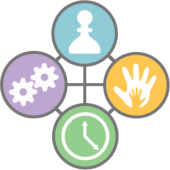Abstract: Sustainability has the potential to provide a holistic framework that can bridge the gap that is often found between socio-economic justice and environmental discourses. However, sustainability and sustainability education have typically accepted the prevailing socio-economic and cultural paradigm. It is my aim in this paper to demonstrate that a truly holistic and visionary sustainability (education) framework ought to demand radical and critical theories and solutions- based approaches to politicize and interrogate the premises, assumptions, and biases linked to the dominant notion of sustainability. If we are to envision and construe actual sustainable futures, we must first understand what brought us here, where the roots of the problems lie, and how the sustainability discourse and framework tackle—or fail to tackle—them. To do this is to politicize sustainability, to build a critical perspective of and about sustainability. It is an act of conscientização (or conscientization), to borrow Paulo Freire’s seminal term, of cultivating critical consciousness and conscience. In lieu of the standard articulation of politics as centralized state administration, ‘critical sustainability studies’ is based on a framing that gives prominence to a more organic, decentralized engagement of conscientious subjects in the creation of just, regenerative eco-social relations. It illuminates the ideological and material links between society, culture, and ecology by devoting particular attention to how knowledge and discourse around and across those realms are generated and articulated. I believe that future scholarship and activism in sustainability and sustainability- related fields would benefit immensely from dialoguing with this framework.
Continue Reading
The Sustainability Education Framework for Teachers (SEFT) intends to build a capacity for educators to be able to understand: (i) the broad, complex nature of sustainability, (ii) the problem-oriented, solution driven nature of sustainability, and (iii) how sustainability connects to them as both citizens and classroom teachers. SEFT embraces four ways of thinking––futures, values, systems, and strategic which are conceptualized as being bi-directional and interconnected. The framework aids in linking sustainability topics that are seemingly disparate to the novice teacher population by building upon knowledge, skills, and attitudes necessary for problem solving with respect to complex sustainability challenges. Imagined as a conceptual framework, it offers organizing principles for examining and considering sustainability problem/solution constellations in a coherent fashion. The framework provides the opportunity for self-reflection and independent enquiry by considering and learning through real world foci. Likewise, SEFT offers a logical framework for working in interpersonal, intragroup, and intergroup situations. The four lenses require considering critical inquiries related to societal values, equity, and visions of the future; unpacking the status quo; and exploring and articulating pathways towards a sustainable tomorrow.
Continue Reading